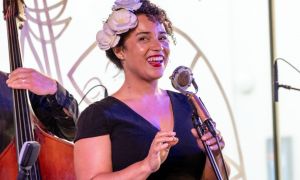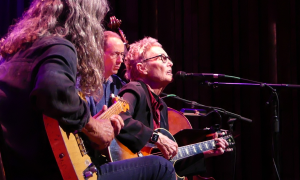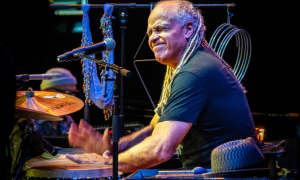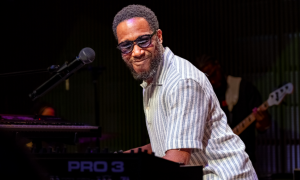Home » Jazz Articles » Live Review » Jazzkaar 2018
Jazzkaar 2018
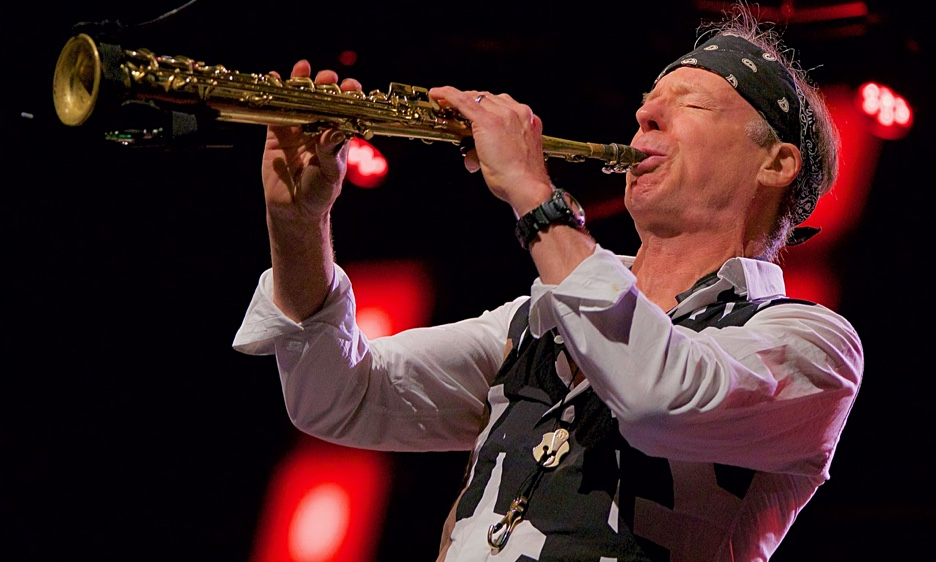
Tallinn, Estonia
April 20-29, 2018
In the year of Estonia's celebrations, having attained a full century as a Republic, its Jazzkaar festival continues to be amongst the very best of the European range. Held annually in Tallinn, and primarily centred around the Telliskivi Creative City, the festival continued its internationalist strategy, combining artists from the USA, UK, and multiple European countries, not least of which involved the indigenous artists of Estonia itself. Jazzkaar's embracing policy holds a strong jazz core, surrounded by adventures into rock, pop, electronica, improvisation, global-ethnic and moderne classical sounds. This is now Jazzkaar's expected omnivorous approach to musical exploration.
The piano squatted right in the centre of this year's programme, with several groups led by composing trinklers. ECM leader


Kristjan Randalu
pianoHe'd caught Randalu in an NYC club, and resolved to record the pianist. During the recording sessions, there was one piece on the album that its composer believed to be concluded, but Eicher softly whispered into Randalu's headphones, urging him to continue. Something completely unpredictable happened, and a certain aspect of Eicher's production strategies was revealed. He also told us how much thought goes into the silences between tracks, the length of mulling-over time, perhaps explaining his initial reluctance towards streaming services. Eicher believes that the editing is of massive importance, as with movies. Privately, he's surely still reluctant on the Spotify front, but has been unable to resist the pressures of what is now the 'music business.' "The auteur is becoming replaced," Eicher observed, sadly, although he suspects that the landscape might revert, eventually. We can already sniff the first stirrings of revolution against the complacency of the algo-social-nosebag, waiting, tensed to tear off our blinkers.
The Randalu set revealed a pushier sound, when compared to the album contents, which is often the case with an ECM act's live incarnation. Plus, an outfit will naturally heighten and intensify their material on the stage. Guitarist

Ben Monder
guitarb.1962

Dan Weiss
drumsOn "Partly Clouded" Randalu made spidering, hyperactive runs, exploding into action, whilst the Finnish drummer
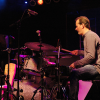
Markku Ounaskari
drumsStill remaining on the piano stool, only two members of

Nik Bärtsch
pianob.1971
Nicolas Stocker
drumsAll personnel were present for the Delbecq 3, with French pianist

Benoit Delbecq
piano
John Cage
composer / conductor1912 - 1992
Local bassist
Heikko-Joseph Remmel
bass, acousticThe Danish duo of Bremer/McCoy had a seeming sound system stacked behind them, but it wasn't quite clear over whether it was being used in place of the conventional stage gear, or with some sort of mixed ratio. Morten McCoy's upright piano was also umbilically linked with a reel-to-reel tape machine, everything determinedly old school, but to craft a soundscape that was part new-fangled and part hoary/cranky. Bassman Jonathan Bremer appeared to be comparably 'natural.' Some might have viewed their reserved, ambient stance as precious, but the pair won over via a hyper-quiet and concentrated sincerity.
The Californian trumpeter

Ambrose Akinmusire
trumpetb.1982

Sam Harris
bassb.1986

Harish Raghavan
bass
Justin Brown
drumsThe Taner Akyol Trio delivered a strongly atmospheric set, featuring the Turkish leader's saz, along with piano from Antonis Anissegos and percussion from Sebastian Flaig, who used a customised kit that revolved around a frame drum core. It was their third number that facilitated full ascent, as Akyol took a vocal, and a majestic character emerged.
Jazzkaar provided a relatively early opportunity to view

The Bad Plus
band / ensemble / orchestrab.2000

Orrin Evans
pianob.1975

Ethan Iverson
pianob.1973

Reid Anderson
bassb.1970

Dave King
drumsb.1970

Cecil Taylor
piano1929 - 2018

Don Pullen
piano1941 - 1995
The next (late) set involved the Berlin guitar trio Komfortrauschen, their mission being to sound like a techno dj, but employing drums, bass and guitar, often masked via extreme effects alteration. At first, we could wonder why they needed guitars for such sonic activities, but around 40 minutes into the performance, they cut the MIDI devices and rocked out, the guitar and bass actually sounding like electric guitar and bass. Even when they returned to the electronics palette, they'd been irrevocably endowed with a new power, their house angle veering into an intense minimalist zone, stripped to a purely pulsing space, making teaser pauses, before lurching off again. Komfortrauschen moved from a phase where your scribe was seriously considering leaving the building, to a point where the atmosphere was charged, between crowd and band, built up by the unstoppable momentum of hard repetition.
In the newly re-christened Alexela concert hall, singer Laura Mvula began a mini-UK evening, projecting to a full crowd with maximum chattiness, surprising with an encouraging down-to-earth character, full of witty observations. Listening to Mvula's music, this personalised attitude might not be expected, as some of her songs sound more formally arranged. This produced a winning contrast between drama and demeanour. Mvula had a funky band in place, with drums, electric bass and keyboards, with herself contributing occasional keytar parts. Again, the recorded work can sometimes sound cumulatively one-dimensional, but this nature was transformed, live onstage, vivified by Mvula's personality and charged delivery, as well as the band's groove interactions.
Not long afterwards, countrymen

Sons of Kemet
band / ensemble / orchestra
Theon Cross
tubaNext came a three-part showcase gig, designed to highlight guitars, electronics, and their interfaces. Beginning with the Mauno Meesit Trio, the leader's guitar joined by electric violin and drums, a Wicker Man-styled prog-folk ambience ensued, calling up thoughts of Popol Vuh, those soundtrackers of Werner Herzog movies, back in the day. Echo and/or reverb ruled the roost, with the odd scraped and stroked whine glass. They also introduced a Viking rock thunder, using a prayer bowl, and this time suggesting a stack of Mogwai records, impressing as all three members attended to the percussing needs of a single, majestically amplified 'acoustic' guitar.
Argo Vals sent his own guitar through a table of effects, gaining spangled repeats and diaphanous delay sprays, building a symphonic glitch plateau upon which he soloed above beats and popcorn pliks. He aspired to an accessible response to

Steve Reich
composer / conductorb.1936
The " data-original-title="" title="">Leonid ?inkarenko Quartet played early the next day, their bassman leader representing the old guard of Lithuanian jazz. His approach led to a different sound, harking back a few decades. Sinkarenko plays a six-string electric axe, and his drummer Lina Buda has big hair, plus a big rock-style kit to match. There's a tough spillage of sound, ripping at the edges, against a jabbing base theme. Keyboard player Dainius Pulauskas picked up an alto saxophone on the second number, helping to deliver a two-horn introduction with trumpeter Valeriu Ramo?ka. A dramatic groove was initiated, with the leader's electric solos displaying strong characteristics of an acoustic upright tone.
There are a handful of festivals that are getting deeply into the home concert concept, and Jazzkaar is one of these, offering a strong programme of intimate gigs in private dwellings, locations only announced following ticket purchases. The pianist

Kirke Karja
pianoIt's always fortunate when a festival reaches a thrilling climax, and tenor man

Bill Evans
piano1929 - 1980

Ulf Wakenius
guitarb.1958
Gary Grainger
bass
Dennis Chambers
drumsb.1959
This bunch were eager to stir up a storming maelstrom from the outset, the members grouped closely together, feeding maximum adrenalin to each other, racing and palpitating with everything on full thrust. This was fusion jazz with super powers, imbued with a hardened, gritted edge. Evans comped on the piano when not taking heated solos on tenor saxophone, letting Wakenius scorch his own trail. This was their tenth show in a row, in pretty much that many days, as they (and we) drank in the momentum of their zooming European tour. Evans had penned a new book of tunes for the tour, but he also returned to "The Hobo," switching to soprano, chasing over a stop-start rhythm. Shockingly, he took a vocal whilst seated at the piano, completely incongruous, as the tip-toe-stretching high notes emerged. Evans was this year's

Steve Gadd
drumsb.1945
"DC Time" was a tight funker, with Grainger slapping his bass hard, whilst Evans and Wakenius trotted out closely compacted dual lines. The set concluded with an as-yet-untitled new number, a 'blues in seven.' Once again, Evans and Wakenius delivered strafing solos, with angular time-swerving, growing towards an avant country funk blues explosion. Their only slip was an encore with the Bill Withers song, "Ain't No Sunshine," with Evans singing again, getting into some piano-and-voice scatting. Not the best possible selection, but otherwise, a mighty set to finish the festival...
Photographs: Matti Komulainen
Tags
Live Reviews
Martin Longley
Estonia
Manfred Eicher
Kristjan Randalu
Ben Monder
Dan Weiss
Markku Ounaskari
Nik Bartsch
Nicolas Stocker
Mike Oldfield
Benoit Delbecq
Miles Perkin
Emile Biayenda
John Cage
Martin Denny
Heikko Remmel
ambrose akinmusire
Sam Harris
Harish Raghavan
Justin Brown
The Bad Plus
Orrin Evans
Ethan Iverson
Reid Anderson
dave king
Cecil Taylor
Don Pullen
Sons of Kemet
Theon Cross
Steve Reich
Leonid Sinkarenko
Kirke Karja
Bill Evans
Ulf Wakenius
Gary Grainger
Dennis Chambers
Steve Gadd
Comments
PREVIOUS / NEXT
Bill Evans - Saxophone Concerts
Oct
30
Thu

Bill Evans & Dave Weckl | The Vansband
Eiffel M?helyházBudapest, Hungary
Support All About Jazz
 All About Jazz has been a pillar of jazz since 1995, championing it as an art form and, more importantly, supporting the musicians who make it. Our enduring commitment has made "AAJ" one of the most culturally important websites of its kind, read by hundreds of thousands of fans, musicians and industry figures every month.
All About Jazz has been a pillar of jazz since 1995, championing it as an art form and, more importantly, supporting the musicians who make it. Our enduring commitment has made "AAJ" one of the most culturally important websites of its kind, read by hundreds of thousands of fans, musicians and industry figures every month.

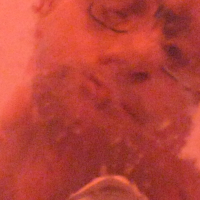
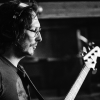
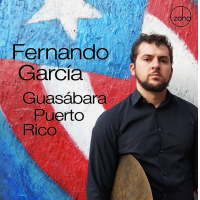



 Buy Now
Buy Now




